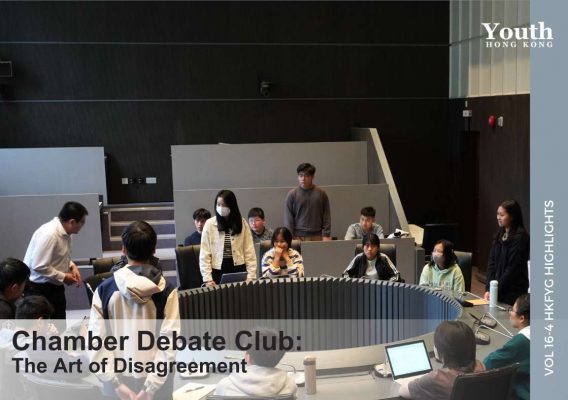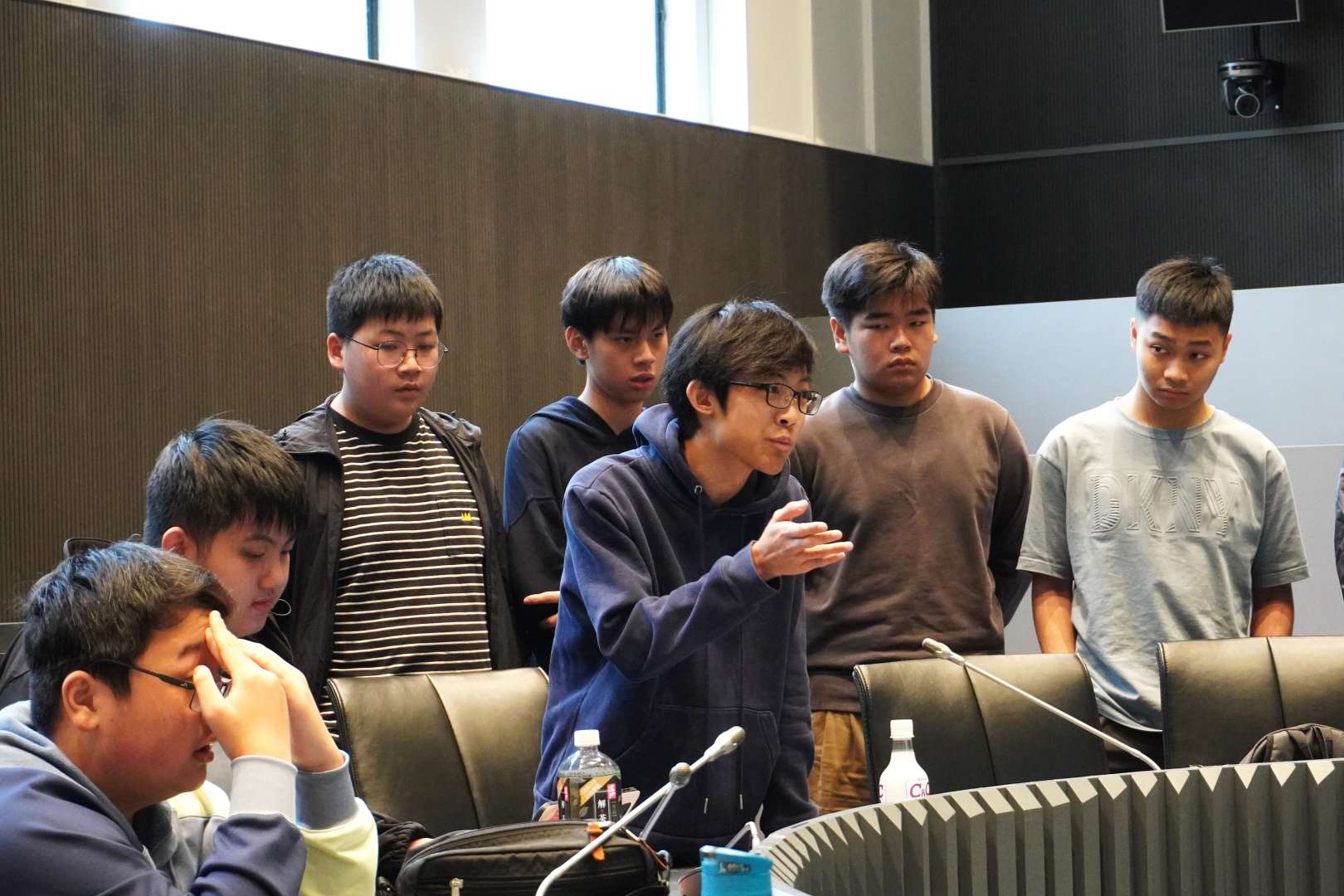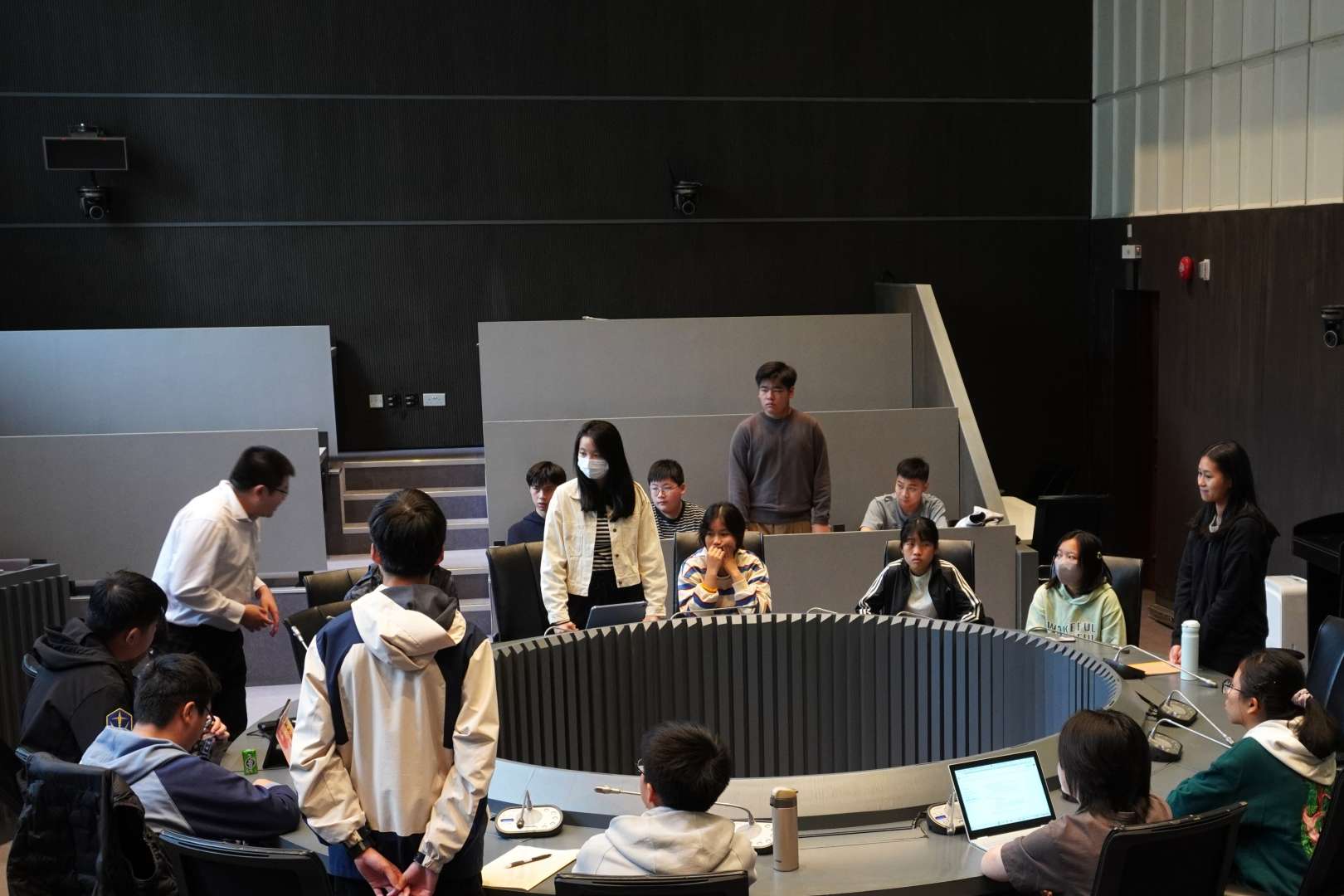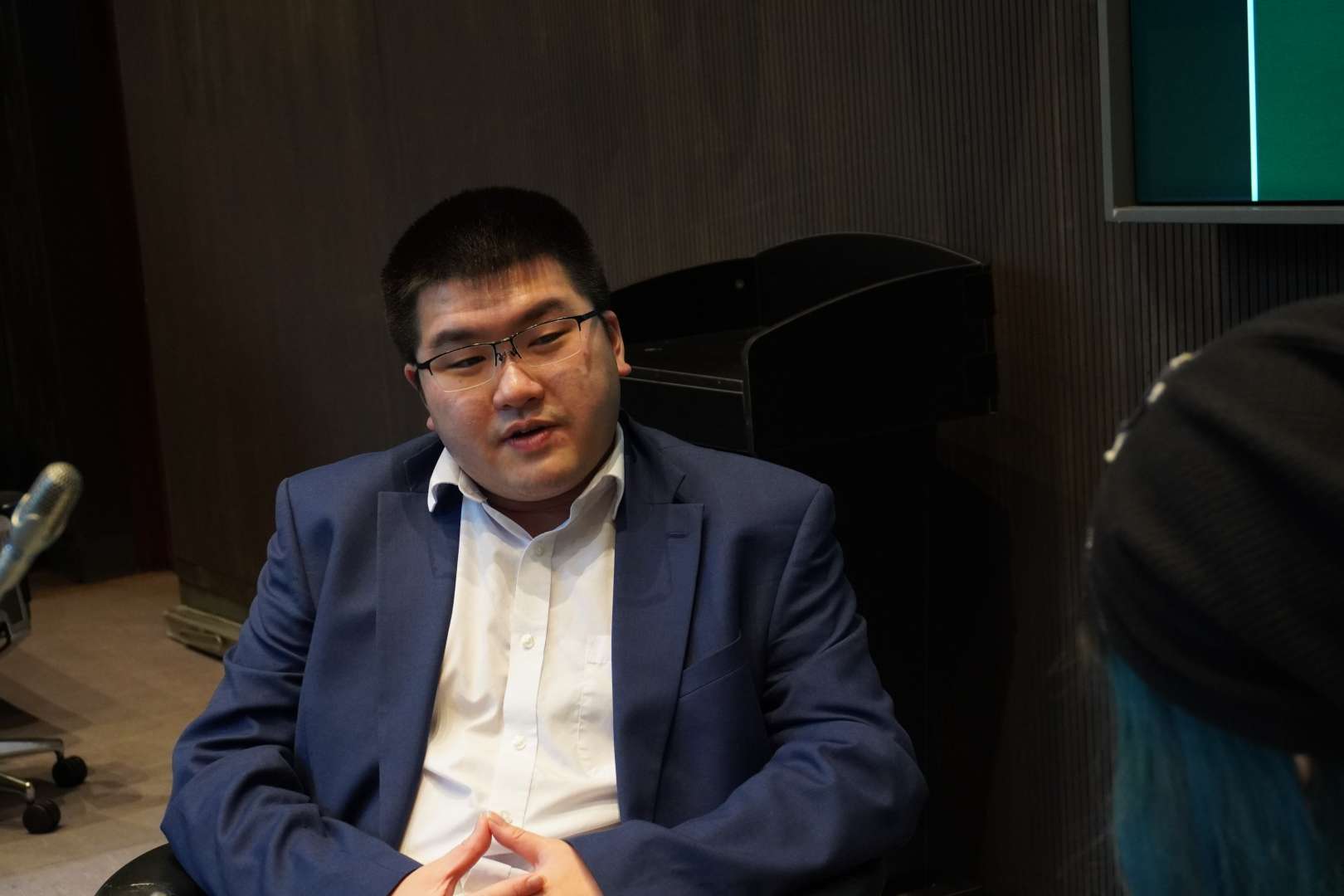//16.4 HKFYG Highlights: Leadership
This year’s Chamber Debate Club has attracted more students eager to learn from coach Dr Brian Wong. Thirteen years after finishing as the first runner-up in the 2011 competition, he is keen to give back to the community by teaching others how to embrace different viewpoints.
“Share your responses,” said Dr Brian Wong as he walked around the table, watching the 20 students. He attentively listened as one student spoke. He listened closely as one student shared her views on whether physical education (PE) classes should be optional. When she finished, Dr. Wong turned to another student. “Now it’s your turn: counter that.”
The debates continued, addressing various topics, from the educational system and Hong Kong economy to topics on whether schools should be banned from assigning homework. In this two-hour training session, arguments flowed from one student to the next, with rebuttals following closely behind, much like a football game where the ball never touches the ground.
This was the third lesson of the HKFYG Leadership Institute’s (HLI) intermediate Chamber Debate Club programme, sponsored by the Standing Committee on Language Education and Research (SCOLAR). In the historic revitalised former Fanling Magistracy, high school students gathered to improve their English public speaking and debating skills through the Digital Debate & Speaking Chamber programme.
Dr Wong, the first runner-up in the HLI’s debate competition in 2011, is now the coach of this two-hour training session. Thirteen years on, he still remembers the excitement he had during that first English-speaking competition and how the experience trained his confidence and contributed to his dedication in his later academic path. He sees it as a moral obligation for him to give back to this platform by voluntarily coaching the younger generations who are passionate about English speaking.
Over the years, HLI has had a long-standing history of helping young people develop communication skills and a global outlook. This year’s course attracted more students eager to learn under Dr Wong, who has coached Eton College’s and Oxford Union’s debate programme and was the first Hong Kong-born Chinese to reach the open semi-finals of the 2020 World Universities Debating Championships.
In developing the course syllabus with the organiser, Dr Wong emphasised an interaction-centred approach, focusing on students’ responses, discussions, and initiatives. Students with less debate experience were given equal opportunities and encouragement to speak and express their arguments and thoughts in front of their peers.
Apart from communication and public speaking techniques, I want students to leave this course with the ability to embrace disagreement and criticism.
“I rarely interrupt students during class to cut off their speeches or thoughts, even if they sometimes come out fragmented,” Dr Wong explained. “I prefer to listen and build on their original ideas and drill them to get them to deepen their arguments on the fly.” He aims to foster more organic interactions among students as the debate evolves, rather than relying on pre-prepared speeches and materials that remain unchanged.
Students are impressed by the diversity and relevancy of course content, as well as the coach’s outstanding public speaking skills. Charmaine Cheng Ka-yau, one of the student participants who had debate experiences before, said the debate class was beyond her expectations as she saw the difference between Dr Wong’s teaching and other traditional debate classes, especially in the way of knowledge sharing.
“I really like Brian’s teaching method, where he emphasises that application is more important than revision. He introduces interesting and relevant topics for us to debate, allowing us to apply the techniques he teaches in a more meaningful way,” Charmaine said.
Hayden Mak Wing-him, another student participant described Dr Wong as a real live wire, saying that his humour and approachable personality made him more confident to speak up and fully engage with the content.
Chung Ho-hin, a first-timer joining a debate class said he enjoyed the real-life applications taught in class, especially around topics of current affairs. “Brian shares many examples of geopolitical events, like the Gaza War, which I usually find a bit dull and hard to follow. However, through his explanations, I’ve become more interested in keeping up with what’s happening around the world,” he said.
The HLI believes in the power of communication as a key skill for personal development and societal contribution. This philosophy aligns with Dr Wong’s approach to teaching English debate. He is keen to share the insights he gained during his years of study in the UK with Hong Kong students, focusing on the essence of debate and communication. For him, debating is not merely about presenting perfect statistics and facts to counter arguments: it’s about engagement and responsiveness to differing viewpoints.
“Apart from communication and public speaking techniques, I want students to leave this course with the ability to embrace disagreement and criticism, as this is essential for intellectual growth,” Dr Wong said. “I want them to appreciate the art of debate, which involves clashing, disagreeing, and diverging in a logical, professional and respectful manner.” ■
The Chamber Debate Club is an English communication training programme organised by the HLI, under the project Gen-Z Communication Studio. Supported by the Standing Committee on Language Education and Research (SCOLAR) and funded by the Language Fund, the project has offered training and workshops to more than 2,500 students since its launch in 2021.
Are you looking to enhance your skills in effective communication, logical reasoning, and empathetic leadership? Join one of our programmes at the Studio for 2024/25. Register now to secure your spot!





